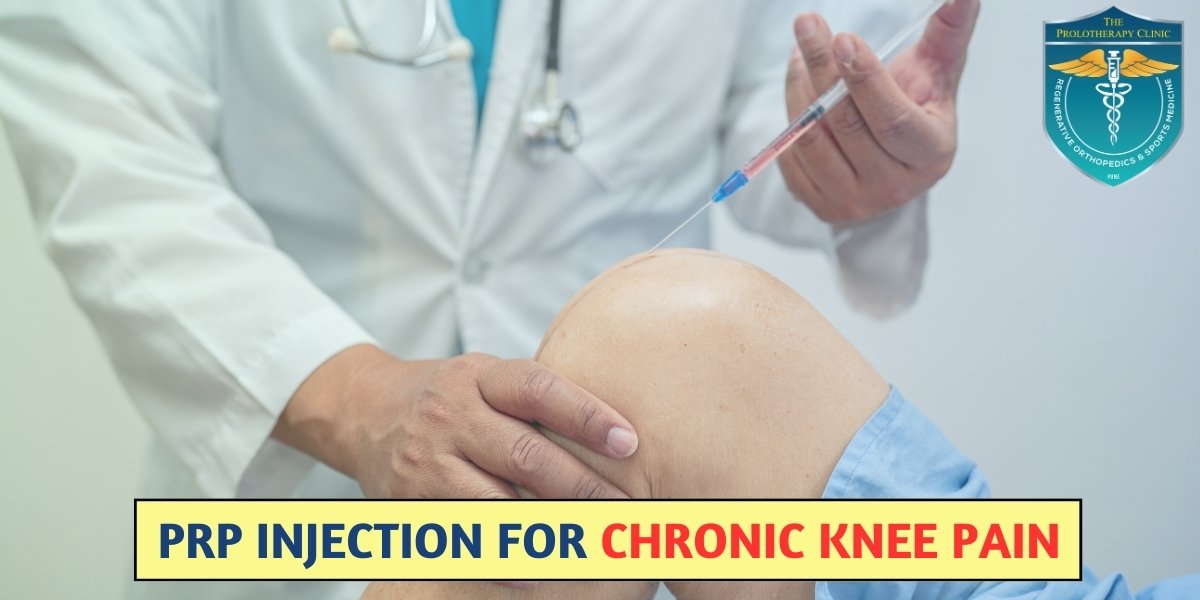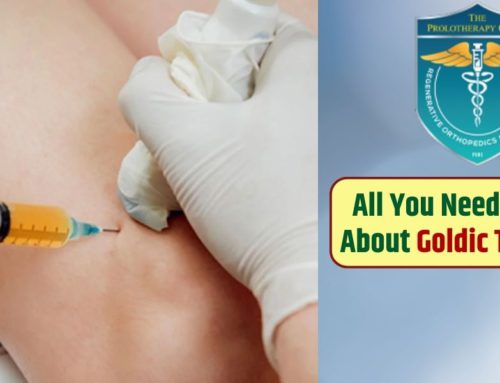Chronic knee pain can significantly impact one’s quality of life, making even simple daily activities challenging. For those suffering from chronic knee pain, finding effective treatment options is crucial to regain mobility and reduce discomfort. Platelet-Rich Plasma (PRP) injection has emerged as a promising treatment for chronic knee pain, offering potential relief and improved function without surgery. In this blog, we explore how PRP injection works, its benefits, procedure, recovery, and more.
What is Platelet-Rich Plasma (PRP)?
Platelet-Rich Plasma (PRP) is a non-surgical treatment that utilizes the body’s own natural healing process to promote tissue repair and regeneration. PRP is derived from the patient’s own blood, which is processed to concentrate platelets, growth factors, and other healing components.
How Does PRP Injection Work for Chronic Knee Pain?
Platelets and Healing
Platelets play a crucial role in the body’s healing process. They contain growth factors and proteins that initiate tissue repair, stimulate cell growth, and reduce inflammation. When injected into the damaged tissue, PRP releases these growth factors, promoting healing and regeneration.
Targeting Chronic Knee Pain
In the case of chronic knee pain, PRP injections target the underlying cause of pain, whether it’s due to osteoarthritis, ligament injuries, or other degenerative conditions. By delivering a concentrated dose of growth factors directly to the affected area, PRP aims to reduce pain, improve function, and slow down the progression of joint degeneration.
Procedure Overview
- Blood Collection: A small amount of blood is drawn from the patient, typically from the arm.
- Centrifugation: The blood is then placed in a centrifuge machine, which separates the platelets and other healing components from the rest of the blood.
- PRP Preparation: The concentrated PRP solution is prepared, ensuring a high concentration of platelets.
- Injection: Using ultrasound or fluoroscopic guidance for accuracy, the PRP is injected into the knee joint or the specific area of injury.
Benefits of PRP for Chronic Knee Pain
- Non-Surgical: PRP offers a non-surgical alternative to traditional treatments like cortisone injections or knee surgery.
- Natural Healing: Since PRP is derived from the patient’s own blood, there is minimal risk of adverse reactions or rejection.
- Reduced Inflammation: PRP’s anti-inflammatory properties help alleviate pain and swelling in the knee joint.
- Improved Function: Many patients experience improved mobility and function after PRP treatment.
- Long-lasting Relief: PRP injections can provide long-term relief, reducing the need for frequent medication or invasive procedures.
Recovery and Results
Recovery time after PRP injection for chronic knee pain is relatively quick compared to surgery. Patients may experience some soreness or discomfort at the injection site, which usually resolves within a few days. The full effects of PRP treatment may take several weeks to months to manifest as the body undergoes the healing process.
Is PRP Right for You?
While PRP injection has shown promising results for many patients with chronic knee pain, it may not be suitable for everyone. Factors such as the severity of the condition, overall health, and medical history will determine if PRP is the right treatment option. Consultation with a qualified healthcare provider is essential to assess eligibility and discuss personalized treatment plans.
Revolutionizing Chronic Pain Treatment
Platelet-Rich Plasma (PRP) injection offers a novel approach to treating chronic knee pain by harnessing the body’s natural healing mechanisms. With its non-surgical nature, minimal risks, and potential for long-lasting relief, PRP has become a preferred choice for many individuals seeking alternatives to traditional knee pain treatments.
Dr. Vikram Rajguru at the Prolotherapy Clinic is dedicated to providing advanced treatments for chronic pain and musculoskeletal injuries. Whether it’s chronic pain, joint injuries, or degenerative conditions, Dr. Rajguru offers personalized treatment plans to help patients regain mobility and improve their quality of life. At the Prolotherapy Clinic, patients receive top-notch care.




